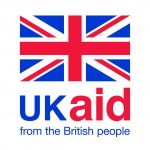Case study 12: Easypaisa – a mobile operator-led solar pay-as-you-go model for Pakistan
In 2013, we launched the Mobile for Development (M4D) Utilities Innovation Fund (formerly MECS) to test and scale the use of mobile to improve or increase access to energy and water services. With the support of the UK Government, £2.4 million in Seed and Market Validation grants was awarded to 13 organisations in 11 countries across Africa and Asia.
Today we continue our case study series on lessons learned from these 13 projects. A core output of the Innovation Fund is the lessons and evidence base developed throughout the grant timeline that can inform ecosystem players, such as commercial benefits to mobile operators, and social and economic impacts for the underserved. By making these lessons public, we intend to accelerate scaling and sector growth. Since the inception of these grants, we have already seen significant expansion and innovation to mobile-enabled products and services for water and energy delivery as well as sanitation, and the business models that support them.
The twelfth case study in our series focuses on Easypaisa, the first and largest mobile financial services provider in Pakistan, jointly launched by Telenor Pakistan and Telenor Microfinance bank. Easypaisa partnered with two pay-as-you-go (PAYG) vendors to provide PAYG solar in Pakistan.
In January 2014, Easypaisa was awarded a Seed grant to trial the sale of 125 solar home systems in Pakistan, reaching 750 customers. Pakistan had an electrification rate of 69 per cent in 2012, with only 57 per cent access in rural areas. In contrast, about 85 per cent of the population has access to GSM networks. Thus, the addressable market for mobile-enabled utilities, defined by those lacking access to energy but covered by mobile, was estimated at 29 million people or 16 per cent of the population.
The key objectives of the grant were to trial a mobile operator-led solar service and to explore the synergy between energy access products and Easypaisa’s assets, including its mobile money service, distribution network and knowledge of customer’s historical mobile usage. Easypaisa worked with two vendors for this project, Roshan Energy and Brighterlite Pakistan to test two different PAYG business models: lease-to-own and rental or energy-as-a-service.
Key findings from the case study include:
Seasonality imposes challenges on the PAYG model, especially on the rental model: Due to the hot and humid conditions in Pakistan, fans are a highly valued appliance. However, fans are power hungry and drain batteries faster, potentially leaving consumers feeling that their systems are performing poorly. Further, seasonal energy demand creates a key challenge for vendors, particularly in the rental model.
Both PAYG models found traction in the market: Although asset ownership is highly desirable, higher monthly payments in the lease-to-own model were a deterrent to some customers. The rental model, which required lower but perpetual monthly payments, is more practical for some customers.
Customer satisfaction rates are high: 84 per cent of respondents were satisfied with their system, of whom 36 per cent were completely satisfied. The majority of respondents expressed willingness to recommend their solar solution to friends and family. The attributes most valued were that the product fulfilled a critical need, was convenient and of good quality.
Customers’ GSM recharge history can prove valuable in evaluating creditworthiness: However, it required a long period of piloting to fine tune and customise the algorithm and internal processes for each product.
Both Roshan and Brighterlite have sold or rented over 2,000 SHSs to date showing that both models are gaining market acceptance. Going forward, Easypaisa plans to scale up its offering of solar products by supporting its vendors to expand their reach as well as by partnering with other solar vendors.
This initiative is currently funded by the UK Department for International Development (DFID), and supported by the GSMA and its members.


